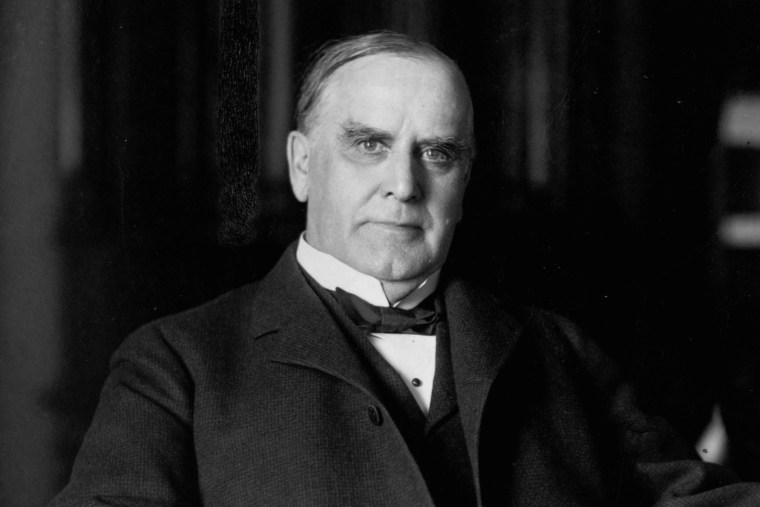Donald Trump’s murky economic vision for the United States is straight out of the ’90s. And not the 1990s — the 1890s.
Following an event in Warren, Michigan, on Friday, Trump faced widespread backlash for reverential remarks he made about William McKinley’s tariff plan while touting his own proposal to institute massive tariffs on imported goods. A wave of economic experts have warned that Trump’s plan would likely lead to a spike in the cost of goods for everyday Americans.
But Trump continues to tout it as his top economic proposal. I suspect that the potential for these tariffs to make some of his already wealthy megadonors even richer could have something to do with that.
Nonetheless, during Friday’s town hall in Michigan, Trump gushed about McKinley:
We’re going to use tariffs very, very wisely. You know, our country in the 1890s was ... probably the wealthiest it ever was, because it was a system of tariffs. And we had a president — you know McKinley, right? You remember Mount McKinley? And then they changed the name. But one of those things. He was really a very good businessman, and he took in billions of dollars at the time, which today it’s always trillions, but then it was billions and probably hundreds of millions. But we were a very wealthy country, and we’re going to be doing that now.
As is typical with most Trump claims, this one requires a fact check. McKinley was a member of the House — not president — when his proposal for massive tariffs was signed into law by President Benjamin Harrison in 1890. And far from the economic boom Trump suggests it was, the tariffs were widely unpopular and contributed to major Republican electoral defeats in 1890 and 1892, followed by a depression known as the Panic of 1893. The 1890s also coincided with the end of the Gilded Age, a period known for extreme wealth inequality.

When Trump praised McKinley’s tariffs earlier this year, Princeton University historian Sean Wilintz explained the foolishness of those comments to The New Republic:
[The tariffs] raised average duties across all imports from 38 percent to 49.5 percent—a big leap. It was supposed to protect American industries from foreign competition and thereby bind a labor-capital alliance. Yet while it was great for manufacturers of wool and tin-plate, it became extremely unpopular in the country, which suffered from the profiteering indulged in by American manufacturers, causing a dramatic rise in consumer prices. In part this was responsible for the GOP getting clobbered in the 1890 midterms, and helped doom Benjamin Harrison’s re-election bid in 1892.
Back in 2019, Matthew Yglesias wrote for Vox that Trump’s interest in the McKinkley era serves as “a powerful reminder of his unusual ability to be totally obsessed with trade policy without actually knowing anything about it — or caring to learn.”
Indeed, this McKinley obsession speaks to two Trump truisms: He’s hopelessly ignorant about policy, and the policies he chooses to embrace favor the wealthy at all others’ expense.
